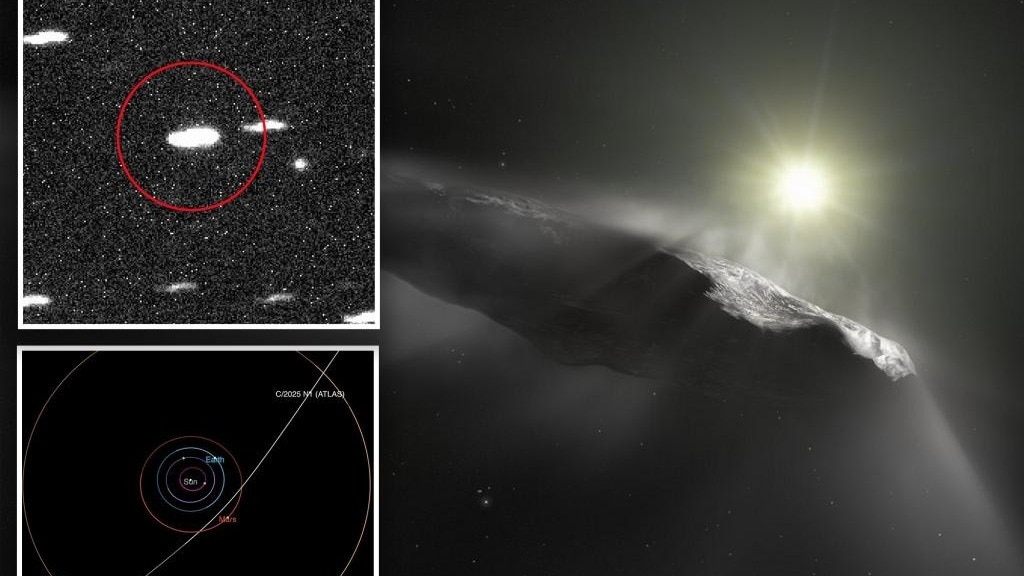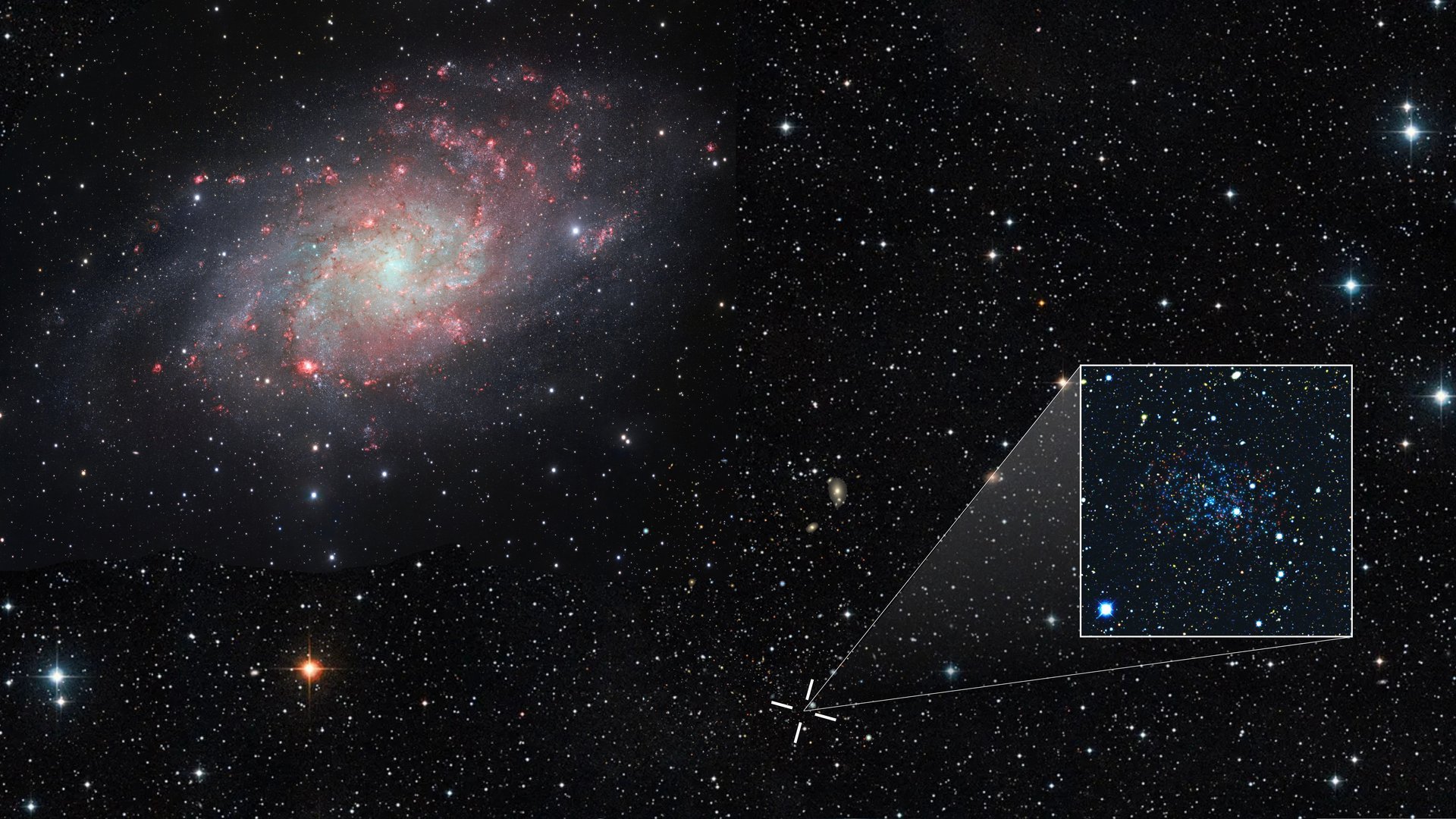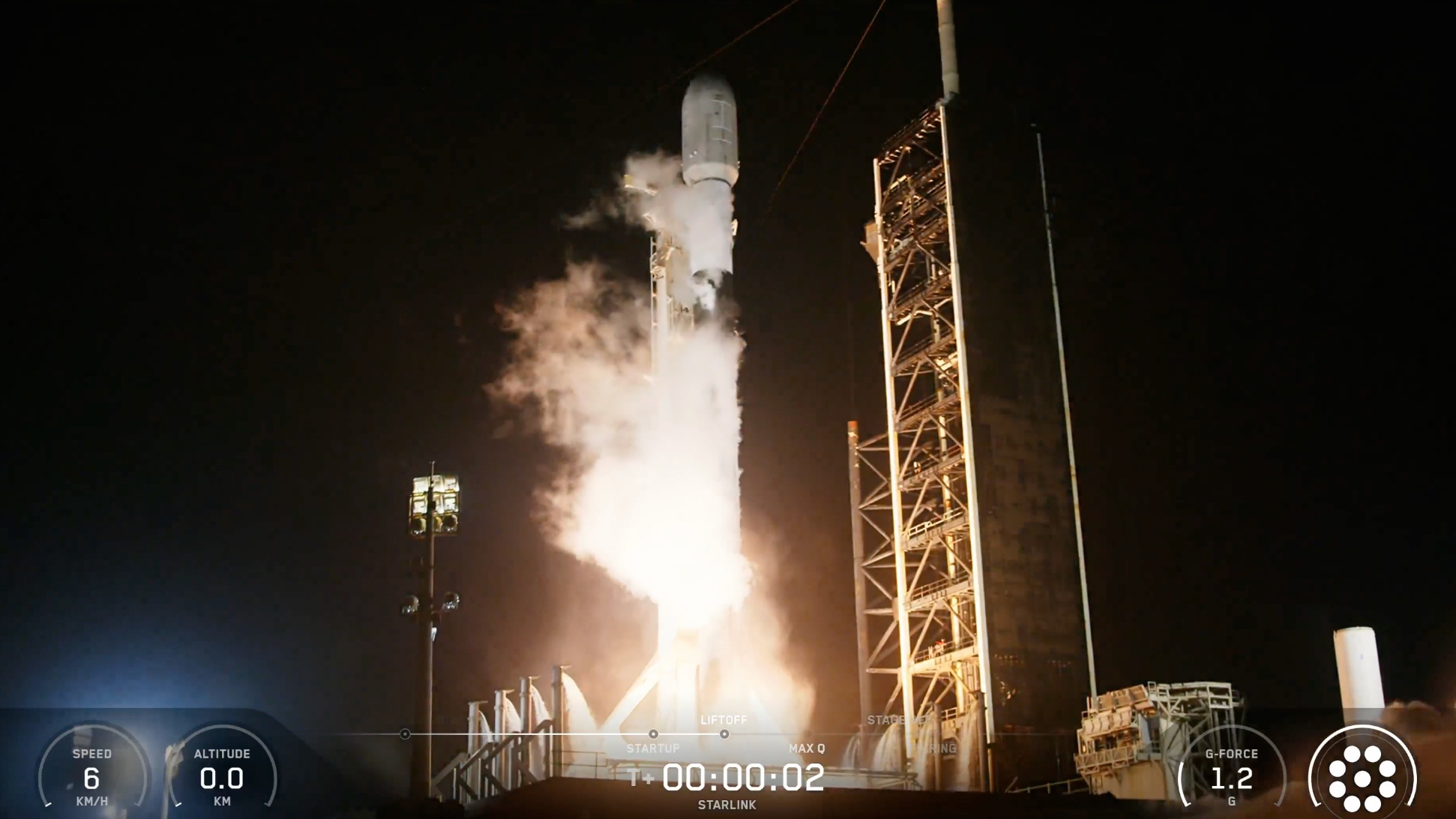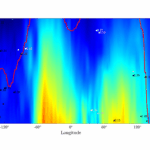Now Reading: How old is 3I/ATLAS? Renowned physicist speculates
-
01
How old is 3I/ATLAS? Renowned physicist speculates
How old is 3I/ATLAS? Renowned physicist speculates

(NewsNation) — The admittedly unique characteristics of comet 3I/ATLAS can be attributed to its vast age, rather than the suggestion it’s an alien vessel in disguise, says theoretical physicist Michio Kaku.
The bestselling author of “Hyperspace” and “Quantum Supremacy” joined “NewsNation Prime” on Saturday to discuss the widely publicized observations of Avi Loeb, a Harvard professor who notes, among other anomalies, that 3I/ATLAS lacks a traditional comet’s tail and is emitting nickel signatures that aren’t natural.
Kaku says the interstellar object is different from other comets humans have observed, which range in age from 3 billion to 4 billion years old.
“This is a very old object, perhaps 7 billion years old,” Kaku said of 3I/ATLAS. “That’s why, for example, the nickel content of the comet is off scale. Its chemical composition is not what an ordinary comet should be, and that I think is because over 7 billion years it’s had plenty of time to accumulate different gases, different elements, different kinds of environments that it goes into.
“I think that explains a lot of the mystery behind the comet.”
NASA should release latest 3I/ATLAS data: Michio Kaku
3I/ATLAS is expected to come closest to Earth around Dec. 19 before it makes its way out of our solar system. NASA, which reportedly has high-resolution images taken Oct. 2, has said the comet poses no threat. Loeb has urged NASA to release the latest data so that scientists can analyze the information.
Kaku agrees the space agency should release the data, though he’s not inclined to think 3I/ATLAS is anything but a comet.
Asked what he might say to Loeb about some of his colleague’s wilder conjectures, Kaku replied: “Speculation is fine, but you have to quantify it, you have to say what is the level of confidence on this speculation. Is it 100%, is it 1%? Otherwise, you panic the public, and the public wants to know the truth.”
Kaku says 3I/ATLAS appeared to pick up speed as it passed the sun, which is unusual. But he said he doesn’t think the object has some kind of engine propelling it, as Loeb recently suggested. Maybe a piece of the comet broke away, Kaku speculates.
“There could be reasons that explain why there’s a sudden spurt in velocity,” he said. “That’s not a smoking gun.”
Stay Informed With the Latest & Most Important News
Previous Post
Next Post
-
 01Two Black Holes Observed Circling Each Other for the First Time
01Two Black Holes Observed Circling Each Other for the First Time -
 02From Polymerization-Enabled Folding and Assembly to Chemical Evolution: Key Processes for Emergence of Functional Polymers in the Origin of Life
02From Polymerization-Enabled Folding and Assembly to Chemical Evolution: Key Processes for Emergence of Functional Polymers in the Origin of Life -
 03Astronomy 101: From the Sun and Moon to Wormholes and Warp Drive, Key Theories, Discoveries, and Facts about the Universe (The Adams 101 Series)
03Astronomy 101: From the Sun and Moon to Wormholes and Warp Drive, Key Theories, Discoveries, and Facts about the Universe (The Adams 101 Series) -
 04True Anomaly hires former York Space executive as chief operating officer
04True Anomaly hires former York Space executive as chief operating officer -
 05Φsat-2 begins science phase for AI Earth images
05Φsat-2 begins science phase for AI Earth images -
 06Hurricane forecasters are losing 3 key satellites ahead of peak storm season − a meteorologist explains why it matters
06Hurricane forecasters are losing 3 key satellites ahead of peak storm season − a meteorologist explains why it matters -
 07Binary star systems are complex astronomical objects − a new AI approach could pin down their properties quickly
07Binary star systems are complex astronomical objects − a new AI approach could pin down their properties quickly



















